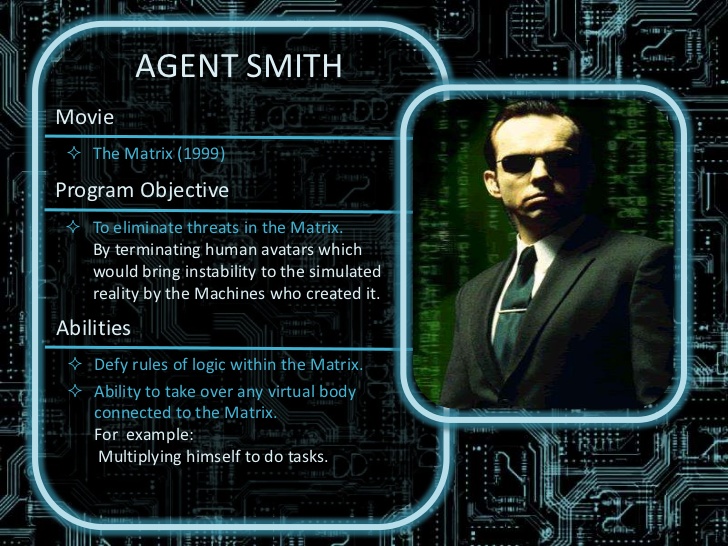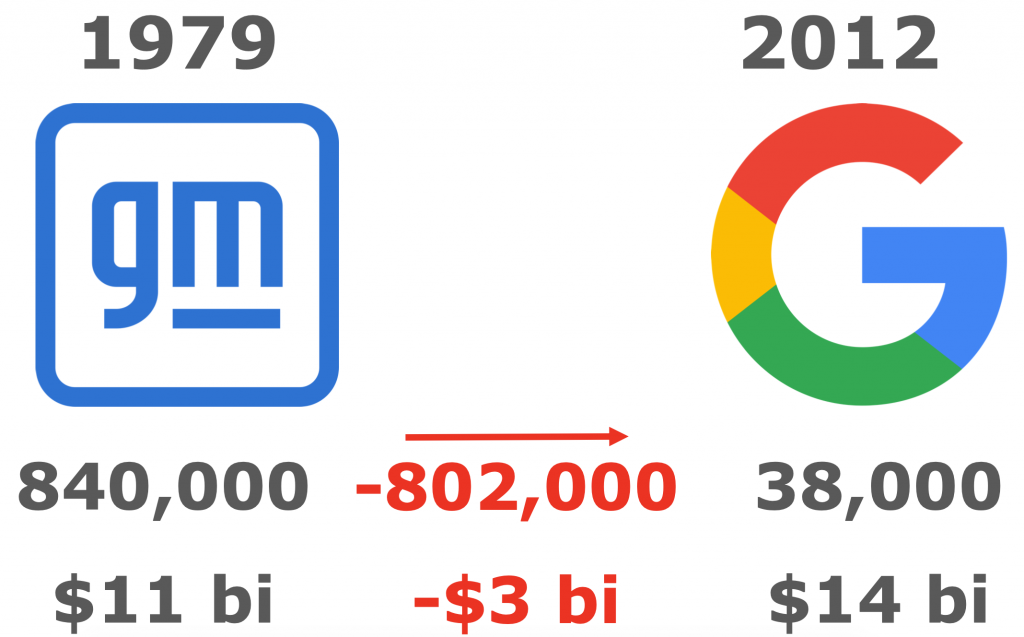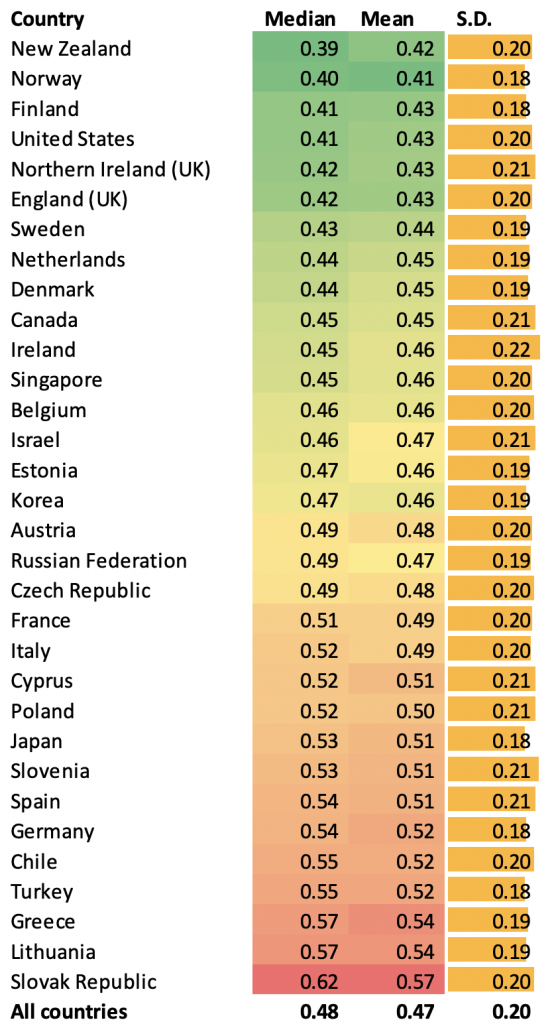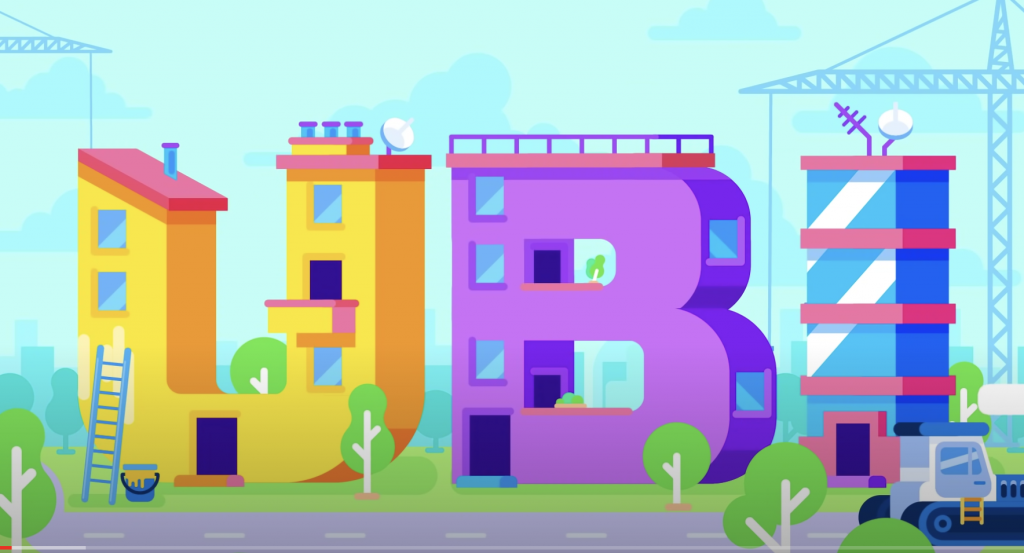When talking about Artificial Intelligence, one might wonder if we are about to live in first-hand a version 2.0 from the movie Terminator. The myth from the of machines versus human presented by the cinema has definitely impacted on how we see autonomous agents. Blade Runner 2049, Matrix and Ex Machina are some amazing yet terrifying sci-fi thrillers with sentient machines that at some point put in danger the humanity as a whole. It might not be exactly like that in real life, but Artificial Intelligence is here to revolutionise the world as we know it. But if AI brings so much uncertainty (as well as some frighten), why should we even bother to further develop this technology?

Why do we even want to use AI?
Well, it might not be at all surprising that one of the main reasons for using AI in companies is the lower cost in operations. It’s undeniable that most enterprises, when presented with the opportunity to lower costs will choose to do so, not giving that much a thought on a long-term effect on economy if they can maximize gains now. Better today than tomorrow when it comes to cash in hand, right?! And AI can undertake many human capabilities such as understanding, reasoning, planning, communication and perception, often outperforming humans, increasing its efficiency as well as lowering production costs.
Tasks such as analysing data, and finding patterns in it is one canonic example of AI in one of its best performances to date. Other examples, that might be even more appealing for individuals are the significant range of new products and services. This includes autonomous vehicles, automated medical diagnosis and the perks of having everything connected and customised with the internet of things, facilitating daily life in this busy world of ours. And it does not end there, several sectors, primarily the ones that collect more data will be able to use AI-powered applications in the short-term. For instance, financial services, retail, healthcare, manufacturing and logistics will be deeply impacted. The later will be able to use computer vision, autonomous vehicles, and have an AI to solve the Travelling Salesperson problem (a route optimising problem, one of the most intensively studied problems in computational mathematics). The fact is that examples of how AI can be implemented in a circular economy are as extensive as creative.
AI can be developed in different lines of study, but there is some consensus in the desired abilities it should develop. Some companies and researchers are addressing AI’s ability to solve problems through logical reasoning, whilst others might lean towards its planning abilities, by specifying a future optimal state of the world and a sequence of possible actions, enabling AI to give next steps. Yet, other parties invest in AI’s capability of understanding written and spoken language by using Natural Language Process, as we see for instance, in Intelligent personal assistants.
“We have only bits and pieces of information but what we know for certain is that at some point in the early twenty-first century all of mankind was united in celebration. We marveled at our own magnificence as we gave birth to AI.”
MORPHEUS, Matrix
If AI is so amazing, why are we only using it now and not decades ago?
Well, first of all, although it can be a recent field of study when compared to others, such as physics, mathematics or philosophy, Artificial Intelligence is being already studied for almost seven decades, having devoted researchers on the topic since the 1950’s. However, it is true that there are several enablers that have only in recent years allowed AI to thrive in a fast-paced and escalated form. The increased availability of data to train AI algorithms, as well as the hardware itself that has now has widened its capacity are two important factors. Moreover, the rise of cloud-based services, the amazing wave of open-source frameworks within the domain and last but not least, the increase in investment by technological giants in the industry have immensely contributed as well. For those wanting a more challenging read, this technical, yet essential book in the area can help you understand you the main gist of AI – I advise you to read the introduction for that!
Thus, the Information Age brought with its rapid advances in many industries built during the Technological Revolution, including the AI field. Its potential to revolutionise every industry in the next few generations brings some mixed-feelings to the surface. Since it does not seem like AI can and will retroact, there is a need for us to find its place in society. This means rethinking the macroeconomy, today’s professions, and the possibility of the machine substituting humans in the workforce. What consequences would that bring for humanity and for the machines themselves?
Is AI going to take away my job?
From the beginning of 1970’s with the emergence of this new age, jobs have started being taken over by machines much faster than they were in the past. Although this age is booming by creating new industries, it is creating fewer and fewer jobs. In 2012 Google made around 14 billion dollars while employing 38,000 people, a high contrast with 1979, when General Motors employed 840,000 people and made 11 billion dollars in profits (after adjusting the inflation). The Internet did create new industries, but it is not creating enough jobs to keep up with population growth or compensate for the industries the internet is outdating. Some worrying news from a 2016 research developed by the Organization for Economic Cooperation and Development (OECD) estimates that 9 percent of jobs would be completely displaced in the next two decades while many others will be transformed.

And it does not end there: an updated OECD paper from 2018 readjust the numbers after developing a 32-country study stating nearly half of jobs are vulnerable to automation. Interestingly enough though is that not all countries are to suffer the automatability in same proportions: “33% of all jobs in Slovakia are highly automatable, while this is only the case with 6% of the jobs in Norway. More generally, jobs in Anglo-Saxon, Nordic countries and the Netherlands are less automatable than jobs in Eastern European countries, South European countries, Germany, Chile and Japan. The higher risk of automatability does not only arise from the fact that these countries have relatively larger share of manufacturing jobs, but also from differences in the job content within nominally similar industries and occupations ”.

Source: OECD Social, Employment and Migration Working Papers, 2018.
Although private sector and third sector studies do have different takes on the long-term outcome, they converge into affirming that massive layoffs will occur in a transition period. For the optimists, such as World Economic Forum in a study from 2018, automation would displace 75 million jobs but generate 133 million new ones worldwide by 2022. McKinsey Global Institute in the end of 2017 makes an optimistic prevision, stating that there can be enough new job creation to offset the impact of automation.
Curiously enough, in a new report from July of 2019 McKinsey Global Institute produces a less positive report stating the threats of AI, specially for Women, affirming that “between 40 million and 160 million women worldwide may need to transition between occupations by 2030, often into higher-skilled roles”. Oxford Economics report also falls in the sceptical group, stating that up to 20 million manufacturing jobs worldwide will be lost to robots by 2030.
Innovation in the information Age doesn’t equate to the creation of enough new jobs, which would be bad enough on its own, but now a new wave of automation and machines is taking over. Apart from the job losses, the world population is growing and the generation of new jobs is shrinking leading to a deficit from both sides. Work involving complex tasks in a computer can be outdated even sooner than people still working in factories. These include, for example, tax preparers, radiologists, lawyers, translators, loan underwriters, insurance adjusters, financial analysts, and even journalists or software-engineers. This argument falls in line with the book The Future of Employement, that apart from the aforementioned, underline that “occupations that involve complex perception and manipulation tasks, creative intelligence tasks, and social intelligence tasks are unlikely to be substituted by computer capital over the next decade or two”.
AI will disrupt today’s job structure, but fear AI not.
With an overall consensus, at least in the short-term, AI will bring a disruption regarding the job structure we face today. But with the proper measures in place AI can benefit us more than can damage us. It will bring disruption to then lead us to a new economy model, with more appealing professions, potentially lower price of products and services for the population and a new and less work-focused society.
First, for reducing the impact on this transitional period, various economic, legal, regulatory and socio-political factors will prevent many occupations from disappearing. In some cases legal and political choices will have to be made in order to prevent poverty and a tsunami of layoffs that can collapse society. Some scientists and relevant public figures from the technology sector are pressuring for Universal Basic Income (UBI) implementation. Elon Musk, Bill Gates and Mark Zuckerberg are some of those names. According to Zuckerberg at a Harvard speech: “Now it’s our time to define a new social contract for our generation. We should explore ideas like universal basic income to give everyone a cushion to try new things”.

Universal Basic Income Explained
A UBI is a guaranteed recurring lifetime payment without strings attached to every member of society to at least meet basic needs. With it, economies would be able to eliminate monetary poverty, by offering a way of people to leave above poverty line. It would also empower people to choose their destinies. Not being attached to government conditions to receive help mitigates the stigma of an individual being dependent of assistances. And of course, UBI would serve as a cushion for technological unemployment. Although only small-scale experiments were made up to date, they have brought positive expectations about UBI’s potential. A study from Roosevelt Institute has used proven macroeconomic models developed by Levy Institute to analyse three different types of UBI. The conclusion reached by them is that the economy can not only bear the federal expenses to provide all people a universal income, but could even grow thanks to the stimulative effects of cash transfers on the economy.
For those more sceptical about UBI, doubting its validity specially concerning how lower classes would use the income, know that the misuse of hand in cash was proved wrong for most of people in situation of poverty. In the Economic Development Journal an article reviewed 19 studies with quantitative evidence on the impact of cash transfers on temptation good expenditure as well as 11 survey studies on the topic. Results show that cash transfers have been demonstrated to improve education and health outcomes and diminish poverty in various contexts. This result is supported by data from Latin America, Africa, and Asia, for both conditional and unconditional cash transfer programs, concluding cash transfers for alcohol and tobacco for instance are unfounded.
Scientists are also advocating for additional means of improving the unemployment situation. The AI expert Kai-Fu Lee feels we can differentiate ourselves from AI throughout the use of empathy, and creativity or strategy, which are domains in which AI is not fulfilling. This would include jobs related to intrinsic human values of compassion, such as social workers, caregivers and teachers. Other big names in the domain such as the Cognitive Scientist Joscha Bach even go a step further saying there are going to be many jobs that can only be done by people and these are the jobs in which we are paid for being good and interesting people.
How A.I. Will Deliver Universal Basic Income, Better Jobs, and Corporations | Joscha Bach
Let’s embrace change
The nature of innovation in the Information Age is different from the processes we have previously encountered. AI might really generate more unemployment than it creates this time. Our economy is based on the premise that people consume, but if fewer people have purchasing power, there will be an important drop in consumption. According to scientists we should instigate the creation of policies and regulations, state a Universal Basic Income and work in developing new skillsets based on human values.
“It might be a bumping road, but we are forced to understand we live in a world in which we do things just because they have been done in the past decades. We perceive this is the way it should be done, and we often don’t question these ways. We think: if this is the way I earn my bread, how can I prevent AI from making my job obsolete? Maybe that is the wrong question to ask. Maybe we should ask how can we reorganize society in a way I do things I want to do most, that are useful to me and others”
BACH, Joscha
There is no coming back from AI development now, and nor should we want it to. AI can bring advances as never before across multiple industries – not to say all of them. And most importantly, with the help from UBI, it can give people the gift of time. Time to reinvent themselves, time to develop new skills, time to find that very inner creativity vein that fire us from inside out, and inspire ourselves and the world.


